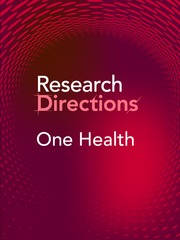Context
The bulk of One Heath’s investment and research focuses on how animal or environmental threats impact human health or well-being. One Health has been less attentive to how human and environmental dimensions interact to impact animal health or on the environmental implications of health management at the human-animal interface. There has also been comparatively little investigation on how to create One Health programmes that promote reciprocal care that is neither human first, nor animal first nor environment first, but rather concurrently protects the health of all three. With this question, we invite authors to explore if or how current policies, practices and perspectives have shaped the primacy of human health as a benefactor of One Health and examine what changes need to be made, if any, to broaden the application of One Health approaches and perspectives. We encourage the use of implementation science methods and strategies to develop evidence-based policies and practice and to promote their regular use by researchers, practitioners and policymakers.
How to contribute to this Question
If you believe you can contribute to answering this Question with your research outputs, find out how to submit in the Instructions for authors (https://www.cambridge.org/core/journals/research-directions-one-health/information/author-instructions). This journal publishes Results, Analyses, Impact papers and additional content such as preprints and “grey literature.” Questions will be closed when the editors agree that enough has been published to answer the Question so before submitting, check if this is still an active Question. If it is closed, another relevant Question may be currently open, so do review all the open Questions in your field. For any further queries, check the information pages (https://www.cambridge.org/core/journals/research-directions-one-health/information/about-this-journal) or contact this email ([email protected]).
Competing interests
The author(s) declare none.




